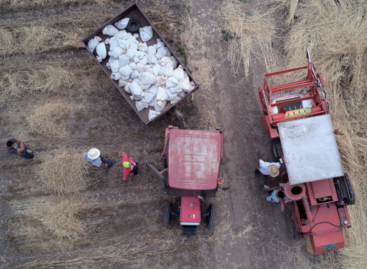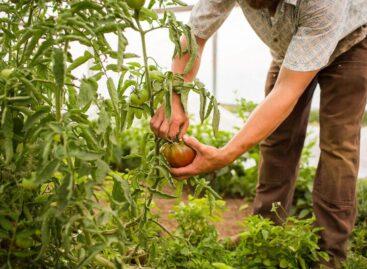FAO Food Price Index registered a steep drop in July, crisis to stay with us until next year
The FAO Food Price Index (FFPI) averaged 140.9 points in July 2022, down 13.3 points (8.6 percent) from June, marking the fourth consecutive monthly decline. Nevertheless, it remained 16.4 points (13.1 percent) above its value in the corresponding month last year. The July decline was the steepest monthly fall in the value of the index since October 2008, led by significant drops in vegetable oil and cereal indices, while those of sugar, dairy and meat also fell but to a lesser extent.

The FAO Cereal Price Index averaged 147.3 points in July following a fall of 19.1 points (11.5 percent) from June, but remained 21.0 points (16.6 percent) above its July 2021 value. International prices of all the cereals represented in the index fell. Leading the decline, world wheat prices fell by as much as 14.5 percent in July, partly in reaction to the agreement reached between Ukraine and the Russian Federation to unblock Ukraine’s main Black Sea ports, indicating the imminent resumption of grain exports from Ukraine. Seasonal availability from ongoing harvests in the northern hemisphere also weighed on prices. Nevertheless, international wheat prices were still 24.8 percent above their values in July last year.
International prices of coarse grains declined for the fourth consecutive month, down 11.2 percent, but remained 12.1 percent above their values a year ago. The deal to unblock Ukraine’s ports was also mostly behind a 10.7-percent fall in world maize prices. Increased seasonal availabilities in Argentina and Brazil, where maize harvests progressed ahead of their pace last year, also helped to ease the pressure on prices. Spillover from weakness in wheat and maize markets also pressured sorghum and barley prices downwards, respectively, by 12.8 percent and 12.6 percent. In July, international rice prices declined for the first time since the onset of 2022, influenced by inconsistent demand and currency movements in major exporters.
The FAO Vegetable Oil Price Index averaged 171.1 points in July, down 40.7 points (19.2 percent) and marking a 10-month low. The sharp drop was driven by falling world prices across palm, soy, rapeseed and sunflower oils. International palm oil prices declined for the fourth consecutive month in July, due primarily to prospects of ample export availabilities out of Indonesia, the world’s leading palm oil exporter. In the meantime, world soy and rapeseed oil quotations fell on, respectively, protracted sluggish demand and expectations of ample new crop supplies. In the case of sunflower oil, international prices dropped markedly amid subdued global import demand, despite continued logistics uncertainties in the Black Sea region. Lower crude oil prices also exerted downward pressure on vegetable oil values.
The FAO Dairy Price Index averaged 146.4 points in July, down 3.8 points (2.5 percent) from June, but still 29.7 points (25.4 percent) above its value in July of last year. International quotations for skim milk powder registered the steepest decline, followed by those of butter and whole milk powder, principally reflecting lacklustre market activities in Europe due to the summer holidays. Furthermore, most buyers were well covered for their immediate needs, which, in tandem with weak demand from China and high dairy prices, led to declines in the demand for spot supplies, weighing on international quotations. Meanwhile, world cheese prices remained stable, as high internal sales in European tourist destinations compensated for weaker global import demand. Despite an overall weak trading activity, tight global supplies sustained global dairy prices at elevated levels.
The FAO Meat Price Index* averaged 124.0 points in July, down 0.6 points (0.5 percent) from June, marking the first month-on-month decline following six consecutive monthly increases. In July, world quotations for ovine meat dropped steeply, due to increased export availabilities from Australia amid high slaughter and expectations of increased lamb supplies, faced by lower import demand. Meanwhile, international bovine meat prices fell, reflecting increased export availabilities from major producing regions compared to global demand, while weak overall import demand kept pig meat prices stable despite the tight supply of slaughter hogs, especially in the United States of America. By contrast, international poultry meat prices reached an all-time high, underpinned by firm global import demand and tight global supplies on Avian influenza outbreaks in the northern hemisphere, notwithstanding recent increases in exports from Ukraine.
The FAO Sugar Price Index averaged 112.8 points in July, down 4.4 points (3.8 percent) from June, marking the third consecutive monthly decline and reaching a five-month low. Concerns over demand prospects due to expectations of a further slowdown of the global economy in 2022 weighed on international sugar price quotations. The decline in prices was also triggered by the weakening of the Brazilian real against the United States dollar and lower ethanol prices, which resulted in a larger than earlier-expected sugar production in Brazil in the first half of July. Indications of greater exports from India and favourable production prospects for the coming season also contributed to the decline in world sugar prices in July. By contrast, concerns over the impact of prolonged hot and dry weather conditions on yield potential in the European Union prevented more substantial price declines.
Related news
FAO: Global food prices rose to more than a year-and-a-half high in November
Global food prices rose to their highest level since April…
Read more >Biodiversity Conference: Droughts causing damage of 300 billion euros per year on Earth
Global droughts are causing an estimated €300 billion (HUF 124…
Read more >FAO global food price index spikes
The global index of food commodities jumped to its highest…
Read more >Related news
DélKerTÉSZ: record quantities of Hungarian vegetables in supermarkets
DélKerTÉSZ sold a record volume of Hungarian vegetables to domestic…
Read more >Anora Group’s expansion in the Baltic region
In order to strengthen its position in the Baltics, premium…
Read more >Prices rose by 3.7% in November
Following a 3.2% year-on-year increase in October, consumer prices in…
Read more >







